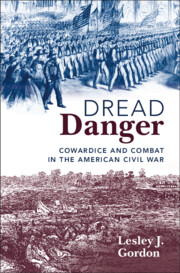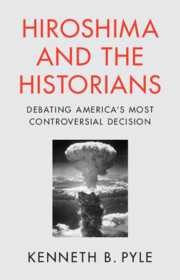6 results
Introduction - “Almost Enough to Make Cowards of the Bravest Men”
-
- Book:
- Dread Danger
- Published online:
- 07 November 2024
- Print publication:
- 21 November 2024, pp 1-12
-
- Chapter
- Export citation

Dread Danger
- Cowardice and Combat in the American Civil War
-
- Published online:
- 07 November 2024
- Print publication:
- 21 November 2024
Introduction
-
- Book:
- Hiroshima and the Historians
- Published online:
- 30 May 2024
- Print publication:
- 06 June 2024, pp 1-17
-
- Chapter
- Export citation

Hiroshima and the Historians
- Debating America's Most Controversial Decision
-
- Published online:
- 30 May 2024
- Print publication:
- 06 June 2024
3 - The Brave
- from Part II - Avatars
-
- Book:
- The Crimean War and its Afterlife
- Published online:
- 10 February 2022
- Print publication:
- 17 February 2022, pp 89-122
-
- Chapter
- Export citation
Chapter 1 - Poetic Fear-Related Affects and Society in Greco-Roman Antiquity
- from I - Origins
-
-
- Book:
- Affect and Literature
- Published online:
- 16 January 2020
- Print publication:
- 06 February 2020, pp 33-48
-
- Chapter
- Export citation

